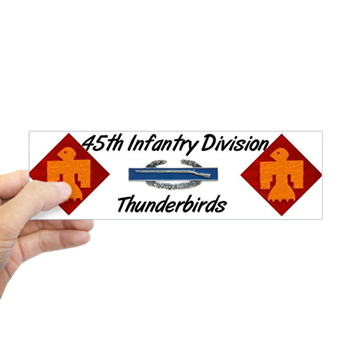Corporal Paul J. Joulwan |



Permission to use this article was given by the author, Maria Herne of the Pottsville Republican Herald.
Lessons from St. Patrick's Steeled Joulwan's ResolvePOW from Pottsville believed good overcomes evilBY MARIA HERNE Staff Writer mherne@republicanherald.com
Sometimes faith and hope are the last, best things a man has left - maybe the only things that can keep his spirit alive. |
|
| The Nazis may have
tried to break his body, but they could not break his spirit or make him lose
faith, Joulwan said. "I prayed all the time," he recalled. After graduating
from Pottsville Catholic High School in 1942, the 17-year-old Joulwan entered
the Pennsylvania Military College, Chester. As a cadet, he was drafted into the
Army in February 1943 and was sent to Camp Walters, Texas, for 90 days of basic
training. From there he went to Shenango Replacement Depot, Greenville, to await
his orders to be shipped overseas. He was assigned to Company H, 179th Infantry,
45th Division as a heavy machine gun and mortar operator, arriving in North Africa
in September 1943. After assisting in the liberation of Naples, the 45th Division
headed north toward to wrestle control of the abbey at Montecassino, a monastery
that the German forces had captured. About 17 miles from Anzio, the platoon was
surrounded by enemy tanks and troops as they marched through a dry canal bed,
and they were forced to surrender. "They had their tanks pointing right at
us. There was nothing we could do," Joulwan said. Taken prisoner, the men
were forced to march north for hours. | |
At one point they were ordered to line up against a wall. The men stood for a few intense moments as the guards screamed at them in German, brandishing pistols. "We thought we were dead right then," Joulwan said. "My friend from Oley - his name is George Dierolf, but we called him Dutchie - was next to me. The other guys called me Blackie, because I would get so dark from being in the sun. He said, Blackie, are they going to shoot us?' We didn't know." They eventually realized that the Germans were only allowing them to take a bathroom break, but that experience became the first taste Joulwan would have of walking a fine line between life and death on a daily basis.
|
The men were herded into a crowded stifling interim camp near the German border. During the six-week stay, Joulwan and his friends began looking for an opportunity to escape. "We saw that the guards were distracted - they were looking at some coins that a prisoner was showing them," Joulwan said. Under cover of darkness, he and several men slipped away by peeling back the barbed-wire fence where they had made a small hole. In the pouring rain, they ran for miles until they came upon a secluded farmhouse. The Italian farmer and his wife inside were frightened of German retaliation for helping the men, but gave them bread and allowed them to dry their clothes.
| |
| Then
they pointed the way to a building across the field where they could find shelter
for the night, "They said there were two other American soldiers hiding there
too, and when we got there, who did I see, of all things, but Jack Fancourt of
Philadelphia, one of the guys I went to military school with," Joulwan said.
The men planned to seek asylum at the Vatican, but before Joulwan could make it
to Rome, he was recaptured about three days later and taken back to the prison
camp. He was beaten viciously with a two-by-four for escaping, he said. One day,
the prisoners were crammed into boxcars and taken by train to Augsberg. During
the journey, they were periodically forced off the train to repair the bridges
and rails that Allied forces had bombed. It was so crowded, the men were forced
to stand for the entire three-day trip and were given nothing to eat but a small
cup of barley soup and, sometimes, a wedge of bread. "I was so hungry, I
traded the watch my Aunt Mary gave me for a piece of bread," Joulwan said
with a bitter laugh. They soon arrived at Stalag VII-B near Memmingen, which would
be their permanent home for the next year. But "home" is a misnomer
for the primitive conditions they lived in, Joulwan said. "There were no
buildings, no shelter from the elements - just a large compound surrounded by
a fence," he said. "There were no beds, no running water, and very little
food. The first few months we didn't even get our Red Cross rations. I don't know
how we survived." |
| |
| hundreds of prisoners, was one of about a dozen men chosen for this duty. As one of the prisoners assigned to farm labor, he now lived in a small barracks, which provided some shelter from the bitter winter cold. And even though they were enemies by war, the German farm family he worked for took pity on him and fed him well and treated him humanely, Joulwan recalled. "They were poor, but what little they had, they shared with me," he said. And vice versa. In return for their compassion, Joulwan saved the candy bars from his Red Cross rations and gave them to the family. Each morning, he and the farmer's two little girls would sit together by the fire, and drink homemade hot chocolate. He muses about those moments of heaven in the midst of hell - the swarthy American soldier surrounded by two, tiny, tow-headed angels. "They weren't afraid of me," he said. "They would hug me." Allied troops finally liberated the region in April 1945, and Joulwan soon found himself on a ship home to the States, were he was honorably discharged. The ugly memories of those months still haunt him, but it served to reaffirm his faith in miracles, he said. "I have had so many close calls in my life, and my angels have always saved me," he said. |
last revision